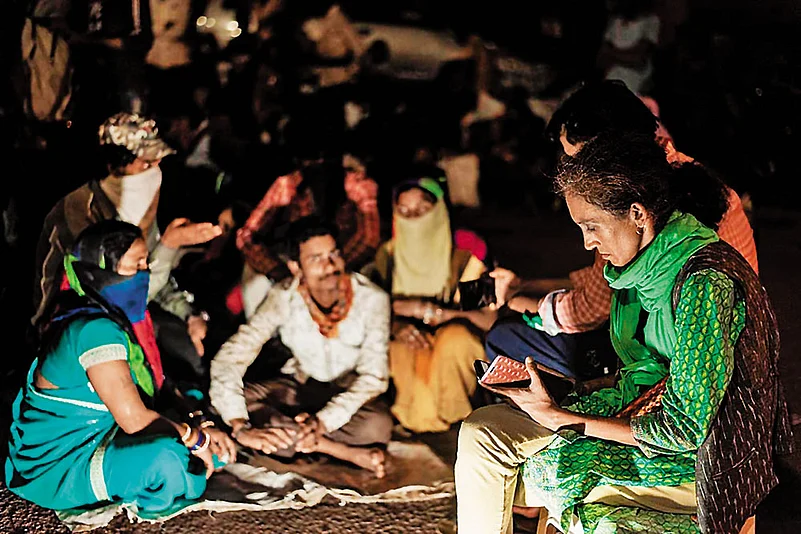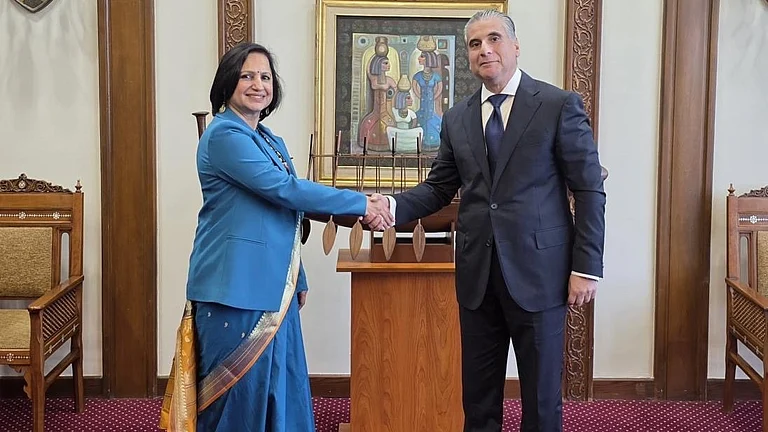It takes a special kind of selflessness to quit a cushy job at an international organisation to serve people in India’s hinterland. Manjeet Kaur Bal of Samerth Charitable Trust did exactly that when she left her World Bank job behind to work for the welfare of the people of Chhattisgarh.
Her dedication towards her home state and its people was aptly reflected in the way she helped them tackle the two devastating waves of the Covid-19 pandemic. For her, last year’s experience in handling the migrant labourers’ crisis came in handy to be better prepared for the second wave.
As soon as she got an inkling that there could be a possible oxygen crisis in the state, she and her team created a WhatsApp group to collate information about oxygen availability. “There was no oxygen in the market or in hospitals. We thought that if retailing of oxygen was happening anywhere, then we would be able to receive timely information. So, whatever oxygen was available could be used optimally. After we started this, we received a lot of demand from the district administration of Raipur as most hospitals are located there,” Bal says.
While there was a government ambulance service available in the capital city of Raipur, a call on 108 would only enable services to government hospitals. Since there was also a huge demand for private hospitals, Bal began leveraging private ambulances to ferry patients.
“We tied up with the state transport department to provide ambulance services. We also set up a control room as resources at the district administration’s control room were running thin. We launched four numbers from our end, set up a team for this and ran those four numbers 24*7,” Bal recalls.
Bal and her team also worked towards resolving the bottlenecks that were clogging the treatment process. She realised that the availability of medicines was a challenge as was home isolation. This made her take up medicine distribution. She hired a team of differently abled people, who were rendered jobless because of the lockdowns, to pack medicines, thereby hastening the distribution process.
But as she was busy providing help to others, Covid claimed the person closest to her—her
father. There was a time when she thought she would not be able to cope with the loss. It
affected her work on the ground. She was struggling to make sense of the void. But she tried to gain strength from her father’s words: “You can do it.”
This has been Bal’s mantra throughout her life. Braving all sorts of discrimination, including gender bias, Bal always took the road less travelled. A wildlife enthusiast, she actively works for the conservation of snakes. Each time people make a call to her with a request to catch snakes, she has to respond to remarks like, ‘Saanp wale bhaiya ko bulaiyein (call the man who catches snakes)’.
“Initially, I used to get very angry. Now I just say, ‘Saanp wale bhaiya to nahi hain, saap wali didi hain. Chalega to bataiyen kaha ana hain (there is no man who catches snakes but there is a woman who does. If that works, let me know where to come)’,” she says laughingly.
It’s the notion that people have about women that needs to change, she believes. “People do not usually associate fearlessness with women. Since snake conservation involves both technique as well as daring, people refuse to trust women with it. Why should it be like that? Fearlessness is a quality. What has anyone’s sex got to do with this?” she argues. And it’s not a rural phenomenon, she cautions as she talks about how she faced gender bias even during her policymaking stint with the government. “There is a distrust that women across board face because of their gender.”
An ardent follower of Mahatma Gandhi, Bal has extensively worked for the upliftment and betterment of the tribal population of Chhattisgarh. She has dedicated her life towards changing mindsets on the ground by taking indigenous people along with her. Her biggest reward is when she wins their trust, she says.
“The Baiga tribe is one of the primitive tribes of India. Several trusts and NGOs before me have not been able to win them over because they wanted to change them. You need to understand them and take them along. Give them what they want and not what you think they should want. That’s how I work with them and they trust me blindly now,” Bal says with a hint of pride.
Bal strongly believes that development should be sustainable and not forced as only sustainable development can make people live in harmony with nature.































